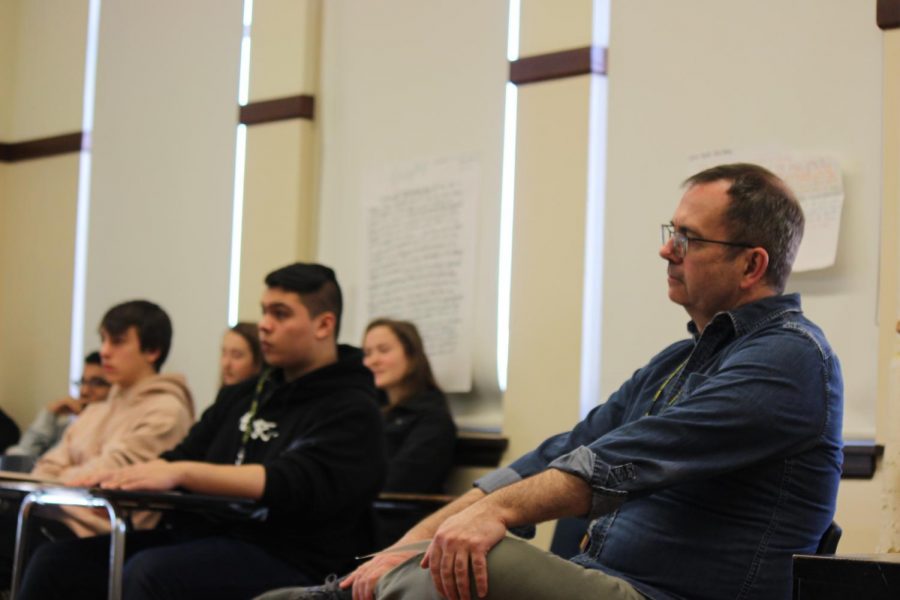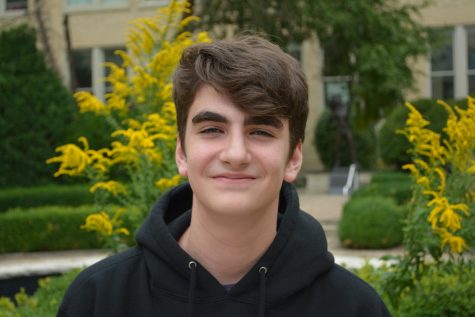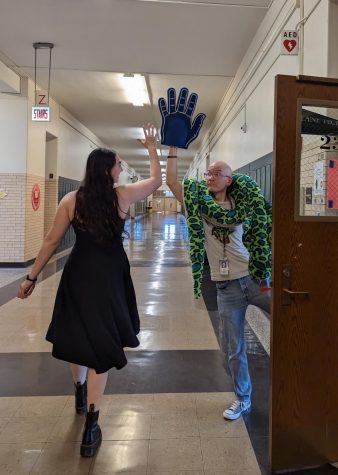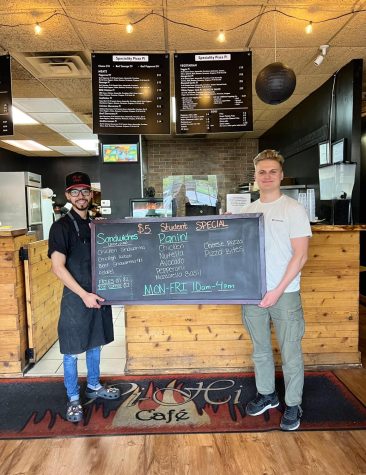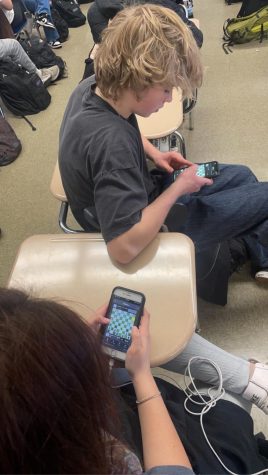Philosophy: A ‘broader perspective’ on the world
Mr. Maslanka listens to a student during a class discussion.
December 21, 2018
Every day during third period, Room 251 transforms into a center of thought as students enter Mr. Maslanka’s room for Honors Philosophy. For these students, there is no “average day” as the ambience of the classroom changes almost every day.
The curriculum is the equivalent of a one semester university Introduction to Philosophy class, but stretched out to last two semesters. The first third of the class covers the Greeks, such as Plato; the second third is modern philosophers such as Descartes; and the last examines 21st century thinkers.
According to Lane’s course catalog, philosophy entails no prerequisites, a fluid classroom atmosphere and many discussions.
Jessyka Thomas, Div. 950, said she finds the class helpful as it allows students to think more abstractly. She also states that these class discussions often go off on tangents.
“Once one person raises their hand, it is almost like a door has been opened and everyone just walks in through,” Thomas said.
Thomas recalls one lesson where students were supposed to start the next section of Aristotle’s “Ethics” but instead wound up having a conversation about what it means when you address someone a certain way — whether it is Mr., Ms. or Mrs.
Students are able to bring in real-world cases and the discussion will steer into a conversation focused on that example for a sizeable amount of the class period, Thomas said.
The class regularly tackles heavy questions, including what it is to be human, or what constitutes reality, according to Maslanka.
Since the course’s beginning in 2001, Philosophy has only had one section most years, occasionally reaching a second period, with only 24 students are currently enrolled.
Mr. Maslanka attributes this unpopularity to the widespread integration of recent technological transformations, as there were not as many different options as when the class started, especially in the arts track.
However, despite the possibility of the class being dropped, Maslanka does not do a lot to promote it.
“I want people who have an interest and want to take the class and study philosophy,” Maslanka said.
The small class size allows for more flexibility and increases student participation, Thomas said.
Nevertheless, Thomas still believes the class has the potential and deserves to grow.
She also stressed how important being able to think independently is, especially for seniors thinking about attending college next year.
“It allows you to think outside of the box, to take your thoughts and separate them from everyone else’s,” Thomas said.
Mr. Locke, a current English teacher and Lane alum, took philosophy as a student under Maslanka. He said philosophy is not your typical class.
“[Philosophy is about] reading really different things that make you look at ordinary things in different ways.”
Locke said philosophy applies to real-life situations.
“It teaches you critical thinking and reading skills and writing skills and analytic skills — and all these things are super useful in jobs,” he said.
Maslanka said he eventually wants to hand over the class to Locke.
Locke obtained a philosophy degree in college and looks forward to finally putting it to good use through teaching the class at some point in the future.
Maslanka said he has high hopes for what his students get out of his class and what skills they carry on to life after high school.
“I want them to gain a much broader perspective and have ways and means of thinking about the world we live in, what is happening in the world, and ways of picturing and conceiving it,” Maslanka said. “Ways of thinking about and understanding the world on a much deeper level.”

